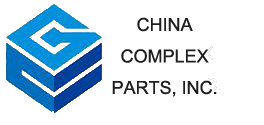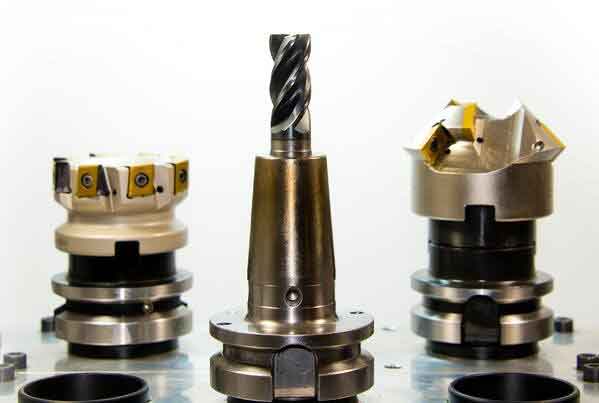Computer Numerical Controlled (CNC) mills follow precise sets of instructions to drill or machine identical parts. CNC milling machines use computerized controls and translated codes from CAD and CAM software to perform automated machining functions on a workpiece.
Milling is the most common type of CNC machining. The rotary cutting tools involved in the milling process remove small pieces of material from the workpiece to shape the piece or create holes. CNC milling processes can machine many different types of metal, plastics, and wood to precisely create intricate parts.
At China Complex Parts, our CNC machining capabilities enable us to fabricate parts from complex designs for clients across a diverse range of industries.
Trends for Diverse Application Efficiency
CNC milling equipment has progressed over time, offering more intricate milling capabilities at faster speeds. The global CNC machining market is expected to continue experiencing exponential growth due in part to continuing advances in the technology. For example:
-
- CNC lathes can now accurately machine items with a diameter of up 457.2mm.
- Computerized hardware is also improving. Controllers have faster CPU integrations than ever before. They can model, manufacture, and analyze results faster to drive more efficient production.
These and other innovations have led to reduced costs for installing, maintaining, and operating CNC milling machines. Some of the benefits driving the popularity of CNC milling include:
Versatility
CNC milling is a reductive process that uses very fast, accurate tools. Milling works well on a variety of materials with varying degrees of hardness. The increased accuracy also means CNC mills can work on parts with different dimensions.
Innovations
The increased capabilities of CNC milling enable engineers to create increasingly complex designs from single materials and with less waste. As such, companies can streamline their R&D process with fewer manufacturing limitations.
Complex Manufacturing
CNC mills follow translated directions from very detailed CAD or CAM models. CNC machines can have up to five-axis systems of control to mill workpieces from multiple simultaneous angles with different tools. This facilitates the fabrication of complex and precise milled parts at faster speeds than ever before.
Industries Impacted by CNC Milling
Due to these benefits, CNC milling has transformed multiple industries. Having more reliable parts pushes innovation and the creation of more advanced, specialized tools. CNC milling has impacted the following industries:
Automotive
CNC machining and milling produces a wide range of metal and hard plastic automotive parts. Vertical milling, in particular, helps facilitate precise measurements and intricate features on brackets, gears, pins, and shafts.
Aerospace
Aerospace equipment uses a variety of hard metals and specialty materials to create parts that range in function from decorative to critical. CNC milling offers better design fulfillment with difficult materials like Inconel, a nickel-chromium superalloy. Milling is also critical for the creation of precise steering equipment.
Commercial Applications
CNC machining processes can finish, cut, and grind parts that create commercial equipment, tools, home décor, and more.
Electronics
Motherboards and other electronic hardware need precise configuration to provide fast and complex performance. Milling can create minuscule engraved numbers, precisely tooled and machined depressions and holes, and other intricate features of electronic parts.
Medical
CNC milling allows medical equipment to retain precise design features with a variety of metal and plastic substrates. CNC milling also creates components and products quickly so companies can stay ahead of the medical technology curve.
Technology
All technology requires precision to work correctly. CNC mills follow designs down to the last detail. This ensures that products with multiple parts and layers can be assembled quickly and without error or misalignment.
Transportation
All manner of vehicles across modes need precise parts to better guarantee safety and long-term performance. CNC milling and CNC machining, in general, provide high-quality parts that meet safety and industry-specific requirements.
Leaders in Precision Machining and Manufacturing
One of CNC milling's key advantages is its precision. Due to the nature of the parts being machined, the machining process needs to have very small margins of error. If milled holes and depressions aren't exact, the parts won't perform reliably or could wear out faster than expected due to misalignment. That's why it's crucial to look for the right CNC milling service provider to handle even the simplest production run.
China Complex Parts became a leader in the CNC machining services market by focusing on high-quality execution and precision. Our team has specialized in CNC machining for over 40 years. Our ISO 9001:2015 certification and quality management system provide total control throughout each production run, ensuring that each part is carefully manufactured to specifications. Along with material deliverables, we focus on providing professional service, on-time delivery, efficiency, quality, and reliability to every customer we partner with.
China Complex Parts has also become a leader in the overall CNC machining market because of our wide variety of services. Our facility uses Haas CNC machining centers and other equipment to offer the following precision fabrication services:
- Milling
- Turning
- Drilling
- Sawing
- Wire EDM
- Prototype production
- Assembly
- Short-run production
- High-volume production
- Heat-treating, painting, plating, and welding through certified vendors
Our CNC Milling Services
CNC milling is one of our key specialties at China Complex Parts. We offer both horizontal and vertical milling to fit any production and design need.
CNC Vertical Milling
Vertical mills use vertically aligned rotary cutting tools. The cutters are attached to a spindle axis that maintains an up-down orientation as it spins. Vertical milling is ideal for plunge cuts, drilling, and die-sinking. These tools allow operators to maintain a direct line of sight as they work, which often makes vertical milling a better fit for highly intricate designs.
CNC vertical mills are available with up to five axes for faster, more complex milling operations. Manufacturers frequently use this process for electronics, medical tools, and industrial parts.
CNC Horizontal Milling
Horizontal milling machines are similar to vertical mills in that they offer precise results and can have up to five axes. However, the spindles are oriented horizontally. These machines are ideal for the following types of material subtractions:
- Details along the side of the workpiece
- Facing
- Grooves
- Holes
- Pocketing
- Shapes
- Slots
Another unique benefit of horizontal milling is the easy cleanup and resulting efficiency. Removed material can easily fall out of the way and be swept aside so the manufacturing process can continue without frequent pausing or adjustment. Large parts benefit the most from horizontal milling. It's commonly used to create products such as aerospace panels and aircraft components.
CNC Milling Tools
CNC mills use multiple rotary cutting tools to create different effects and to remove different degrees of excess material. Some of the most commonly used CNC tools include:
- Routers. These multi-purpose tools provide multiple functions. They can act as bores, panel saws, spindle molders, and cutters.
- Grinders. When materials need to be finished to a certain degree of smoothness, grinders can abrade the substrate until it meets the required conditions. Grinders can finish specialty tools, medical implants, and other instruments.
- Tool setter. These parts manage the CNC milling tools. They ensure the tools set into the spindle at the desired length and can detect wear or breakage.
Get in Touch with the CNC Experts at China Complex Parts
China Complex Parts has provided expert CNC milling and machining services for over 40 years. Our milling machine shop allows us to produce prototypes, high-volume runs, and short production runs to fit your needs. Contact us today to learn more about our material options and machining processes, or request a quote to get started.


